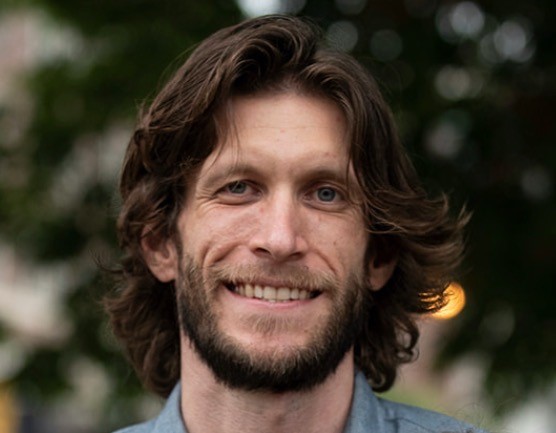News | UC Davis' Jamey Volker Researches Environmental Impacts of Transportation
Stop the VideoNews

UC Davis' Jamey Volker Researches Environmental Impacts of Transportation
Wednesday, February 24, 2021
by Dan Lamere, USC, Master of Urban Planning 2021
Meet Jamey Volker, a 2020 graduate of the UC Davis Transportation Technology and Policy Ph.D. program, and currently a Postdoctoral Researcher at the UC Davis Institute of Transportation Studies.
Dr. Volker’s passion for transportation stems from his interest in environmental sustainability, his primary interest since high school. “My most transformational experience was a month-long backpacking trip in the northern Sierras during the summer after my junior year in high school,” he shared. “That trip has garnered a deep appreciation for ecosystems and also the psychological benefit of spending time outdoors. It also made me incredibly curious about the humankind's - ecological roles and impacts.”

His interest in understanding humanity’s ecological impacts led him to pursue a bachelor’s degree in Environmental Policy and Analysis from UC Davis. While he really enjoyed studying equitable public policy, Volker ultimately decided that he wanted to more actively fight for environmental sustainability and justice, leading to his enrollment in a dual-degree program at UC Berkeley in Law (JD) and City Planning (MCP). During his time at UC Berkeley, Volker gained professional experience in the realm of environmental justice through internships including one in which he assist with litigation to protect public lands and resources.
After UC Berkeley, Volker worked on plaintiff-side environmental litigation for several years, and became intrigued with learning more about the connection between land-use, transportation, and greenhouse gas emissions, which then sparked his desire to go back to UC Davis to pursue a Ph.D. in Transportation Technology and Policy.
For his Ph.D. dissertation, Volker used three mixed-methods studies to explore: (1) how regulatory changes in California (and specifically Senate Bill 743) will affect housing development in urban areas with lower rates of driving (vehicle miles traveled - VMT - per capita and per employee); (2) if existing homeowners will accept densification of single-family neighborhoods (specifically through construction of Accessory Dwelling Units {ADUs}); and (3) whether prospective homebuyers – especially millennials – want to live in the prototypical suburb of the American Dream or chose something more urban. His dissertation was given the Council of University Transportation Center's Charley Wootan Memorial Award for the best dissertation in transportation policy. Additionally, Volker received the inaugural Mary Nichols Environmental Policy Award, alongside his colleague Amy Lee, for their paper in the Transportation Research Record on induced vehicle travel.
As a Postdoctoral Researcher, Volker leads and contributes to several studies related to measuring and mitigating VMT, including one on working toward a better understanding of the impacts of the COVID-19 pandemic on driving patterns. When describing the reasons for deciding to pursue a Ph.D., Volker said, “I felt impelled to share all I had learned - and would continue learning - with a broader audience and hopefully inspire even greater interest and action in planning development for fewer and more equitably distributed environmental impacts.” Volker hopes to eventually find a tenure-track faculty position where he can continue teaching and researching on similar subjects related to transportation, land-use, and environmental sustainability.
About the Author:
Dan Lamere is a second-year Master of Urban Planning student at the USC Price School of Public Policy. He works as a staff writer and project coordinator for the METRANS student team.
News Archive
- December (1)
- November (6)
- October (4)
- September (2)
- August (3)
- July (4)
- June (3)
- May (7)
- April (8)
- March (11)
- February (8)
- January (7)
- December (7)
- November (8)
- October (11)
- September (11)
- August (4)
- July (10)
- June (9)
- May (2)
- April (12)
- March (8)
- February (7)
- January (11)
- December (11)
- November (5)
- October (16)
- September (7)
- August (5)
- July (13)
- June (5)
- May (5)
- April (7)
- March (5)
- February (3)
- January (4)
- December (4)
- November (5)
- October (5)
- September (4)
- August (4)
- July (6)
- June (8)
- May (4)
- April (6)
- March (6)
- February (7)
- January (7)
- December (8)
- November (8)
- October (8)
- September (15)
- August (5)
- July (6)
- June (7)
- May (5)
- April (8)
- March (7)
- February (10)
- January (12)















